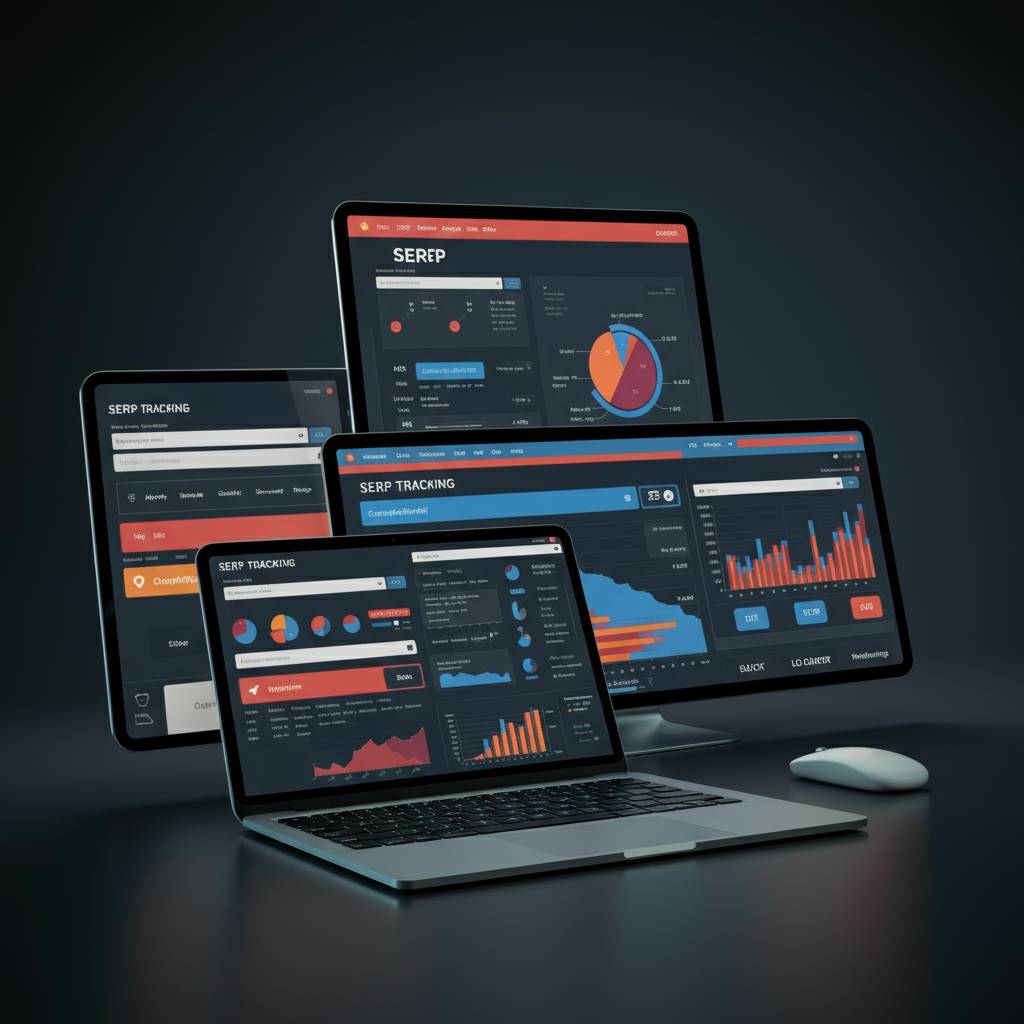Staying on top of your search engine rankings is not an option—it’s a necessity. Whether you’re an SEO professional, a digital marketer, or a website owner, knowing where your website stands on search engine results pages (SERPs) is the key to crafting effective strategies and improving your visibility. But with so many SERP tracking tools available today, how do you choose the one that best fits your needs?
This blog is your ultimate guide to SERP tracking tools. We’ll explore their importance, discuss the best tools on the market, and show you how to use them effectively. By the end of this article, you’ll be equipped to take your SEO efforts to the next level.
Why SERP Tracking is Essential for Success
SERP tracking is the process of monitoring where your site ranks for specific keywords on search engines. These rankings give you insights into how well your SEO strategies are performing and help you identify opportunities for improvement. Here’s why this is so important:
- Measure SEO Performance: Rankings indicate how well your strategy is working. Are your target keywords climbing or sliding down the SERPs? Tracking tools make it easy to monitor this.
- Understand Competitors: Many tools allow competitor tracking, helping you see where they outrank you and where you can outperform them.
- Adapt to Algorithm Changes: Search engine algorithms can change frequently. SERP tracking tools alert you to fluctuations in rankings so you can adjust your strategy accordingly.
The Best SERP Tracking Tools on the Market
Here’s a deep dive into the industry’s finest SERP tracking tools, complete with their standout features, pricing, and reasons to consider them.
1. SEMrush
Key Features:
- Tracks keyword rankings in over 100 locations.
- Offers competitor analysis and organic traffic metrics.
- Delivers daily ranking updates.
Pricing: Starts at $119.95/month for the Pro plan.
User Experience: SEMrush provides a feature-rich interface that integrates seamlessly with various SEO metrics, making it an all-in-one SEO tool.
2. Ahrefs
Key Features:
- Tracks keyword rankings with historical SERP changes.
- Monitors both desktop and mobile search rankings.
- Includes keyword discovery tools for new opportunities.
Pricing: Plans start from $99/month.
User Experience: Ahrefs is praised for its user-friendly interface and comprehensive data presentation, making it ideal for marketers who value simplicity.
3. Serpstat
Key Features:
- Tracks rankings across multiple devices.
- Monitors competitors’ keyword performance.
- Provides heatmaps for location-based insights.
Pricing: Plans start from $55/month.
User Experience: Serpstat is a cost-effective tool that balances simplicity with robust analytics, making it an excellent choice for smaller teams.
4. AccuRanker
Key Features:
- Tracks rankings in real-time.
- Integrates with tools like Google Analytics for deeper insights.
- Supports unlimited domains and keywords.
Pricing: Starts at $116/month for 1,000 keywords.
User Experience: If speed and accuracy are a priority, AccuRanker is the way to go. Its real-time updates are exceptionally fast.
5. Google Search Console
Key Features:
- Free tool, ideal for basic ranking insights.
- Displays queries driving traffic to your site.
- Highlights technical SEO issues affecting rankings.
Pricing: Free.
User Experience: While it’s not as powerful as the paid options above, Google Search Console is an essential tool for anyone starting out in SEO.
SERP Tracking Tools Comparison Chart
| Tool | Key Features | Pricing | Best For |
|---|---|---|---|
| SEMrush | Daily updates, competitor data | Starts $119.95/mo | Comprehensive SEO strategy |
| Ahrefs | Historical insights, easy-to-use | Starts $99/mo | Data-rich yet beginner-friendly |
| Serpstat | Heatmaps, location-based trends | Starts $55/mo | Budget-friendly rank tracking |
| AccuRanker | Real-time updates, integrations | Starts $116/mo | Speed-focused professionals |
| Google Search Console | Free, basic tracking | Free | Beginners and basic use cases |
Success Stories: How Businesses are Winning with SERP Tracking
Case Study 1: Ecommerce Giant Doubles Traffic with SEMrush
A large ecommerce site struggled with fierce competition in the fashion industry. Using SEMrush, they analyzed competitor keywords and adjusted their strategy accordingly. Within 6 months, traffic doubled and bounce rates decreased by 25%.
Case Study 2: A Small Business Thrives with Google Search Console
A newly launched website used Google Search Console to identify which low-ranking keywords were bringing in impressions. By optimizing pages for these terms, they achieved top-10 rankings and increased site visits by 150%.
Case Study 3: Agency Improves Client Performance with AccuRanker
A digital marketing agency used AccuRanker’s real-time tracking for a client’s campaign launch. Tracking keyword performance immediately after launch allowed them to tweak pages promptly, resulting in improved visibility and ensuring the campaign’s success.
Best Practices for Using SERP Tracking Tools
To get the most out of your SERP tracking tools, follow these best practices:
- Set Clear Goals: Before you track, identify what success looks like. Are you focusing on organic traffic growth, targeting specific keywords, or outranking competitors?
- Track the Right Keywords: Narrow down to a mix of branded, long-tail, and high-volume keywords for maximum results.
- Monitor Competitors Regularly: Benchmark your performance against competitors to identify gaps and opportunities.
- Act on the Data:** SERP tracking tools provide insights, but their value lies in how you use the data to optimize. For example, update underperforming pages or create new content targeting keywords with high potential.
- Stay Consistent:** The beauty of SERP tracking lies in long-term data trends. Don’t make knee-jerk changes after small fluctuations—focus on the bigger picture.
Achieve SEO Success with SERP Tracking
Implementing SERP tracking tools in your SEO strategy puts you ahead of the game. From understanding your rankings to getting actionable data to refine your strategy, these tools bring unmatched visibility and insights. Among the options we’ve explored, SEMrush, Ahrefs, and AccuRanker are excellent for power users, while Serpstat and Google Search Console provide outstanding value for budget-conscious users.
Use these tools to analyze, adapt, and achieve higher rankings and better traffic. It’s a competitive world out there—will you be the one to outrank the competition?
Want to share your experience with SERP tracking tools or learn more SEO strategies? Drop a comment below or visit our website for more resources!

